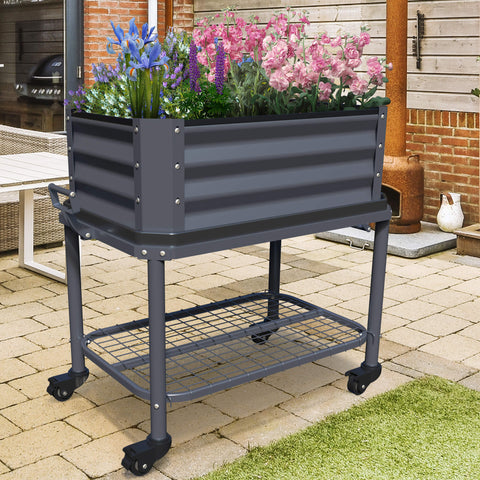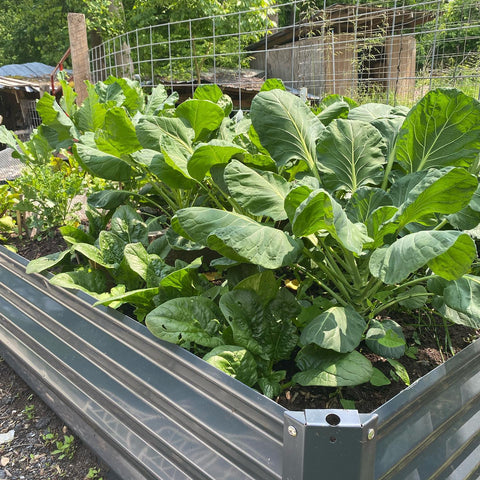A beautiful garden, big or small, starts with the right soil, and you need the right soil to grow your plants. Plants, especially vegetables, can grow in a variety of soils, but for your efforts and the plants themselves to get the best results, the soil should provide all the right things for your vegetable garden.The following content also has some reference value for raised garden beds.
Vegetables need well-drained soil so that their roots don't rot. If your soil is too sticky, it will hold too much water and your plants will suffer. If your soil contains too much sand, it will run off quickly and your plants won't get enough water.
Vegetables need nutrients to thrive. If your soil lacks nutrients, you may need to add compost or other organic matter to improve its fertility.
Peat moss is a very good water retaining agent that helps plants stay wet during periods of drought.
Drainage: Peat moss also helps improve drainage, which can help prevent root rot and other problems. Peat moss is light and breathable, helping to provide oxygen to plant roots. But peat moss is a non-renewable resource and its harvest can have a negative impact on the environment.
It is important to use peat moss sparingly and consider alternatives such as compost or worm droppings whenever possible. Coconut, also known as coconut peat or coconut peat, is the best known substitute for peat moss.
Perlite is a naturally occurring volcanic glass that forms light, porous particles when heated at high temperatures. It is commonly used in potting mixes, hydroponics, and other horticultural applications.
Perlite has many beneficial properties for plants and helps improve drainage by allowing water and air to flow freely through the soil. This can help prevent root rot and other problems caused by waterlogged soil. Perlite helps increase air permeability by providing space for air to flow through the soil. This can help improve the overall health of plant roots. Perlite is non-toxic and inert, which means it does not harm plants or animals. And perlite is a cheap soil amendment that is widely used.
Another key factor in increasing the good soil quotient is the addition of silicon. Silicon helps strengthen plants, making them more resistant to pests and diseases, and helps with soil water retention and drainage.
Is organic potting soil better for vegetable gardens?
Yes, organic potting soil is better for growing vegetables. Organic potting soil is made from natural materials such as compost, worm droppings and peat moss. It does not use chemicals or pesticides, which makes it safe to use in the garden. Organic potting soil also helps to improve soil quality, making it more fertile and productive.
Here are some of the benefits of using organic potting soil in your garden:
Improve soil quality: Organic potting soil helps improve soil quality by adding organic matter. Organic matter helps improve soil drainage, ventilation and water retention. It also helps improve soil fertility by providing nutrients for plants.
Reduce the need for fertilizer: Organic potting soil releases nutrients slowly over time, which means you may not need to fertilize your plants as often. This can save you money and time.
Better plant health: Plants grown in organic potting soil are generally healthier than plants grown in non-organic potting soil.
Increased yield: Plants grown in organic potting soil generally produce higher yields than plants grown in non-organic potting soil. This is because organic potting soil provides plants with the nutrients they need to thrive.
Better taste: Vegetables grown in organic potting soil generally taste better than vegetables grown in non-organic potting soil. This is because organic potting soil does not contain any chemicals or pesticides that can change the taste of vegetables.
There are some potential downsides to using organic potting soil in your garden. One drawback is that organic potting soil can be more expensive than non-organic potting soil. Another drawback is that organic potting soil breaks down faster than non-organic potting soil, which means you may need to replace it more frequently.









